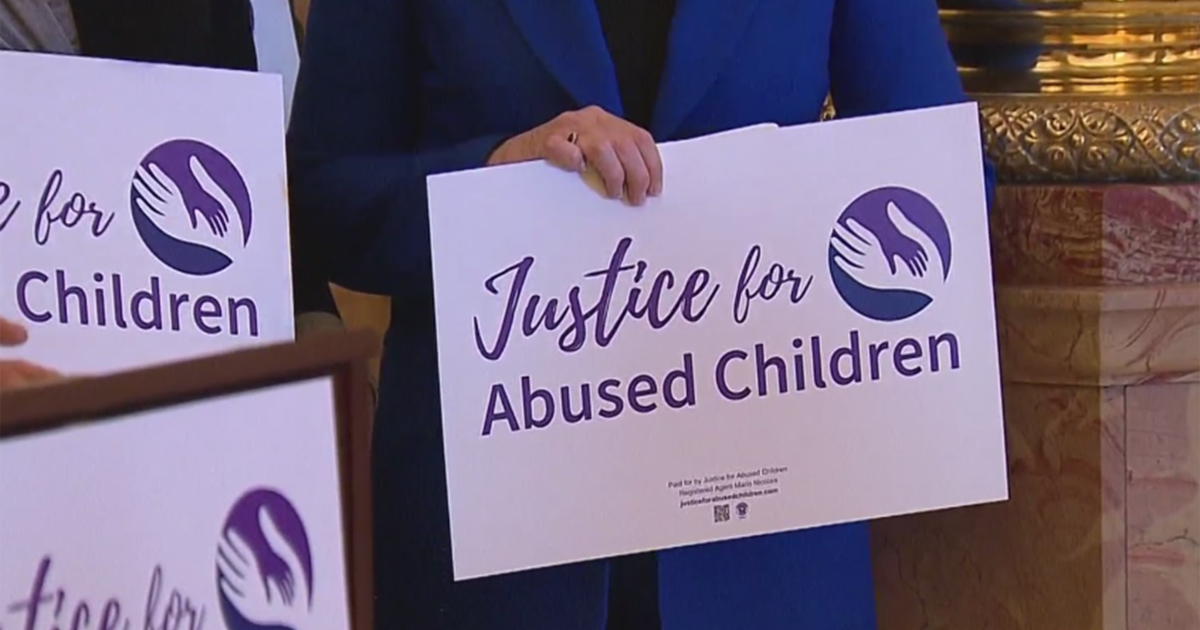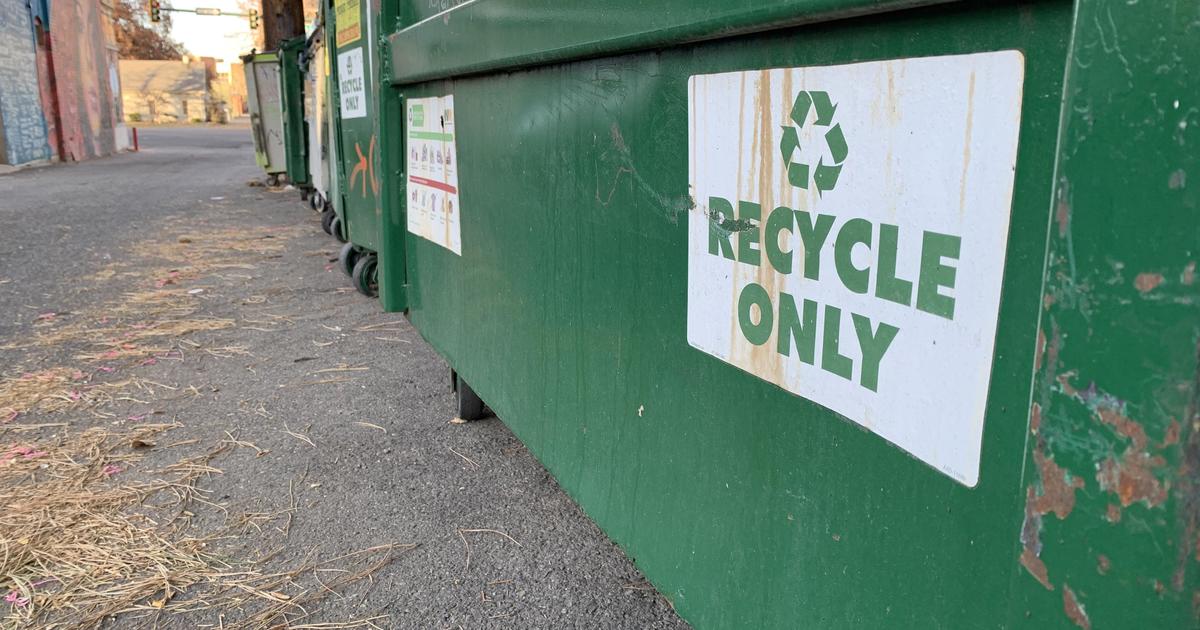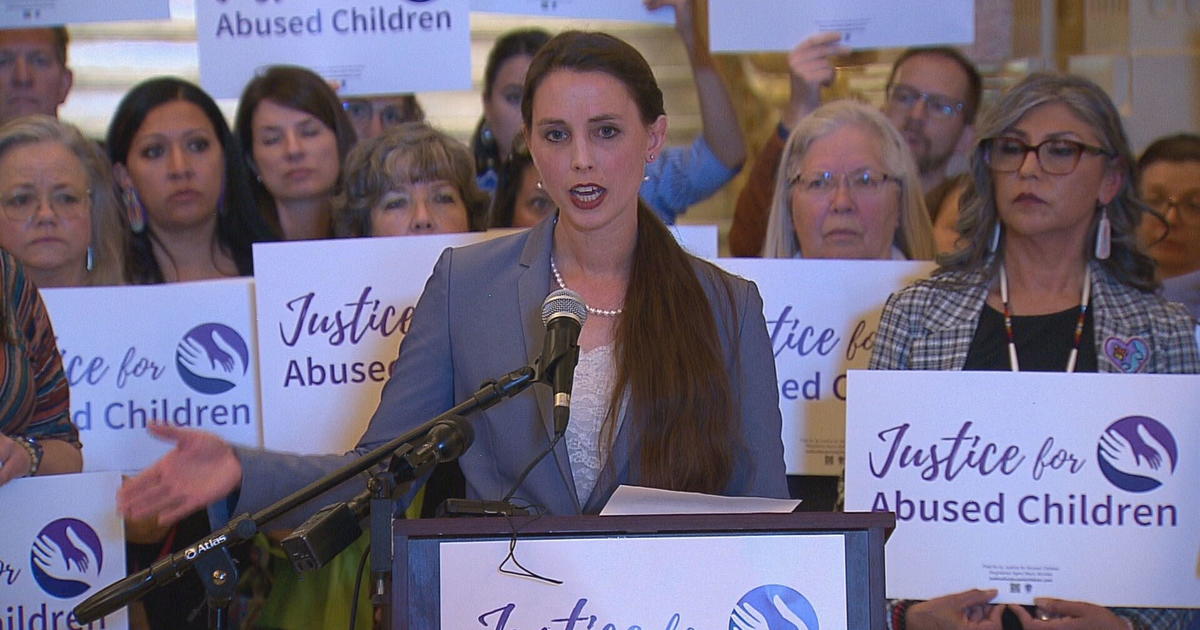Unions Weak In Colorado, But Fear Attacks In Bad Economy
DENVER (AP) - Colorado union members who have gathered on the Capitol lawn by the hundreds and thousands in the last week underscore fears among the state's relatively weak public sector unions that they'll come under attack in a bad economy.
Could Wisconsin happen here? Hardly, experts on both sides say. But union members and their opponents are finding plenty to clash over this year in the state Legislature.
Two GOP proposals to reduce bargaining clout for public employees have been squashed in Colorado's Democrat-controlled Senate. But unionists cite more legislation they consider hostile.
One is a bill in the Republican-controlled House to increase private contracting for Denver's transit system, a move Democrats complain would save money only because private contractors pay less than the Regional Transportation District. A House committee rejected another measure to require state contractors to pay "prevailing wages."
 Photo Gallery: Saturday Rally Images
Photo Gallery: Saturday Rally Images
"Unions have been under attack for decades," said Kurt Lieder, a Littleton electrician who rallied last week to support Wisconsin public sector unions protesting a push by Republican Gov. Scott Walker to lessen their ability to negotiate benefits and working conditions.
"Corporate America wants to paint us as lazy and overpaid, and people buy into that," said Lieder, who is a member of the International Brotherhood of Electrical Workers union and held a sign that read, "WE ARE THE MIDDLE CLASS."
On Saturday, about 1,000 union supporters gathered outside and chanted in support of Wisconsin's union members.
"As long as their fight keeps going, we'll keep fighting with them," 25-year-old union supporter Zoe Williams said Saturday.
Colorado, like other states in the West, has relatively light union membership compared to labor strongholds elsewhere. A decade ago, Colorado union membership in both the public and private sectors dipped below 10 percent of the work force, and they've remained down, according to labor statistics kept by Georgia State University.
Nationally, about 36 percent of public employees are union members. In Colorado, less than 21 percent of public employees were union members in 2009, the most recent year with available data. Colorado's largest state employee union, Colorado WINS, includes only about one in 10 state workers, though it represents all state workers.
Still, unionists here say they're constantly defending against attempts to chip away at their prominence.
In 2007, Democratic Gov. Bill Ritter issued an order allowing state employees to form "partnership agreements" to talk with management about workplace issues -- but it fell short of full collective bargaining. A year later, Colorado business groups lined up behind a ballot proposal that would have banned public employees from contributing to unions through payroll deductions. The measure ultimately failed.
"We're constantly being attacked -- the people who do the work," said 56-year-old truck driver John Haerr, a Teamster who lives in Denver and joined last week's protest.
Ben DeGrow, an education analyst who studies teachers' unions for the right-leaning Independence Institute in Golden, insists there is no organized movement to cripple unions in Colorado.
DeGrow pointed out that Colorado employees already contribute to their pension funds, a major area of contention in Wisconsin, and that Colorado's 42 teachers' unions bargain locally, not on a state level.
A Republican who sponsored an unsuccessful limit on public employee unions. Sen. Shawn Mitchell of Broomfield, said there haven't been larger GOP efforts on public unions here because the unions simply aren't that pervasive.
Colorado wasn't always such a minor player in the national labor scene.
It was the site of the bloodiest conflict in American labor history, 1914's Ludlow Massacre. Nineteen striking coal miners and family members were killed during a bloody daylong standoff with the Colorado National Guard. That battle in Ludlow, now a ghost town northwest of Trinidad, is credited with prompting federal labor laws a year later that included eight-hour workdays and limits on child labor.
Today, state union members say they're simply hoping to hold the line against public officials blaming government workers for state budget shortfalls.
"Anywhere it's difficult to defend workers' rights, so in that way Colorado's not any different than any other place," said Robert Gibson, Colorado WINS executive director.
- By Kristen Wyatt, AP Writer
(Copyright 2011 by The Associated Press. All Rights Reserved.)



